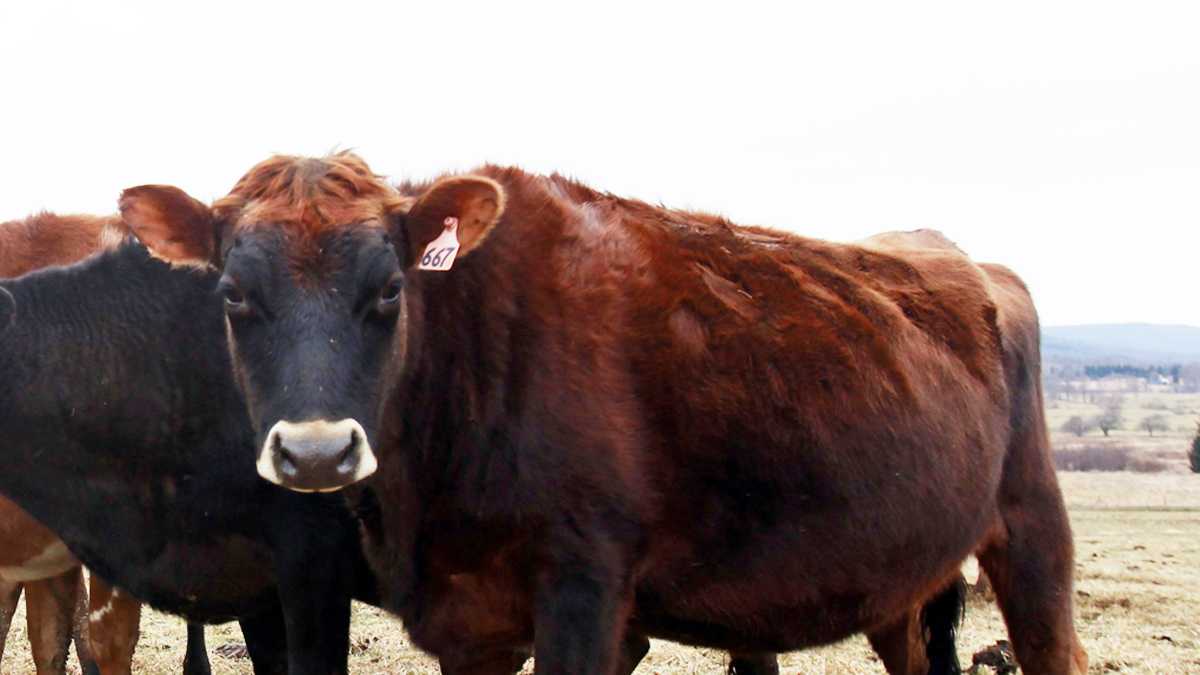Cut back on meat consumption to take a bite out of climate change

(NewsWorks file)
What is the best way to combat global warming? One tactic that the United States must embrace is a diminished reliance on the meat and dairy industries for food.
What is the best way to combat global warming? This is the principal question on the minds of many Millennials, and world leaders have been working to develop ideas to combat climate change. The Paris Climate Summit last month featured global collaboration and broad, flexible plans, but failed to detail specific actions in developed countries or opportunities for individual citizens to make a difference. In fact, the United States is the second-largest emitter of greenhouse gases in the world, with significantly greater emissions than the entire European Union. One tactic that our nation must embrace is a diminished reliance on the meat and dairy industries for food.
You may be surprised to realize that factory farming is the No. 1 cause of climate change in the world. A 2006 report from the United Nations, expanded in 2012, determined that the production of animal-based foods accounted for 18 percent of all greenhouse gas emissions, which is more than the total output of all of the world’s cars, planes, boats, and trains combined. In 2009, after adding the supply chain and the “product” life cycle of animal agriculture, the Worldwatch Institute expanded the total impact of the meat and dairy industries to an astounding 51 percent of annual greenhouse emissions.
The sheer size of the animal agriculture industry is staggering; roughly 70 billion animals were bred as livestock in 2012, according to The Guardian. According to the Pennsylvania Soybean Board, animal agriculture accounted for 70 percent of the state’s total farm income. And the carbon footprint of such industries is radically higher than those Escalades and Hummers on the streets.
The scientific journal Climate Change published a study in 2014 detailing that carbon footprint, and it is not a pretty picture. The average meat-eating adult in the United States, who consumes 100 grams of meat per day, creates 16 pounds of carbon dioxide pollution per day. In comparison, a vegan is accountable for 6.5 pounds per day. The difference is so distinct partly because of methane emissions. Methane’s half-life is much shorter than carbon dioxide’s, and the EPA asserts that methane’s impact on climate change is 25 times higher than the effect of carbon dioxide. Another United Nations report, published in 2011, blames 39 percent of climate change emissions on methane released by livestock; more than the total impact of deforestation.
Decreasing animal agriculture actually provides more food for the global population and decreases land use for farming. An analysis of various scientific documents by the non-profit EarthSave found that 2,500 gallons of water, 12 pounds of grain, and 35 pounds of topsoil, on average, go into the production of one pound of beef. A USA Today article expanded this concept, reporting that six pounds of grain equals one pound of pork and five pounds of grain is equivalent to one pound of chicken.
The takeaway from all of this data? A much larger expanse of fertile land is used to make animal products, when compared to plant-based options. The ramifications of these facts are endless: A lessened reliance on meat and dairy products could decrease deforestation, save water, and reduce the impact of world hunger.
You may say that data is boring and can be biased, and you don’t want to make a change in your lifestyle for some intangible goal. You would certainly be accompanied by countless millions of peers. However, people are starting to realize, over the past decade or two, that global warming is a very real threat. Hybrid cars are so popular that I wouldn’t be able to notice my Prius in a parking lot without my trademark bumper stickers. Renewable energy is becoming more mainstream, and I can see solar panels on houses in my hometown and wind turbines on long drives through the country. And the Paris Climate Summit finalized an accord that included a commitment from 196 countries to address the issue of global warming. Adopting diets with no or minimal animal products seems to be the next logical step in our collective push to end climate change.
The climate talks in Paris focused on increasing clean technology initiatives, especially in developing countries like India and China. Deforestation is another key issue, but countries like Brazil and Indonesia have been unsympathetic due to the economic ramifications of scaled back logging and agriculture. However, any potential actions by countries or ratifications of treaties on these topics will merely slow the effects of global warming. A comprehensive decision to cut back of animal consumption could eventually eradicate the issue.
Vegetarianism and veganism have expanded quickly over the past 20 years, and there’s no reason to think it will not continue to grow. There is no more impactful way to help the environment, and every small measure can make a difference. As the last of the baby boomers reach retirement age, my millennial generation has entered the workforce and developed a new, progressive way of thinking. Twelve percent of millennials are “faithful vegetarians,” according to The New York Times, compared to just 4 percent of Gen-X’ers. Animal cruelty and health are two key reasons, but so is climate change. You can save the Earth in even better ways than a hybrid or renewable energy purchase, just by choosing what you put on your plate.
—
Noah Kauffman is a senior business administration major at Arcadia University.
WHYY is your source for fact-based, in-depth journalism and information. As a nonprofit organization, we rely on financial support from readers like you. Please give today.

